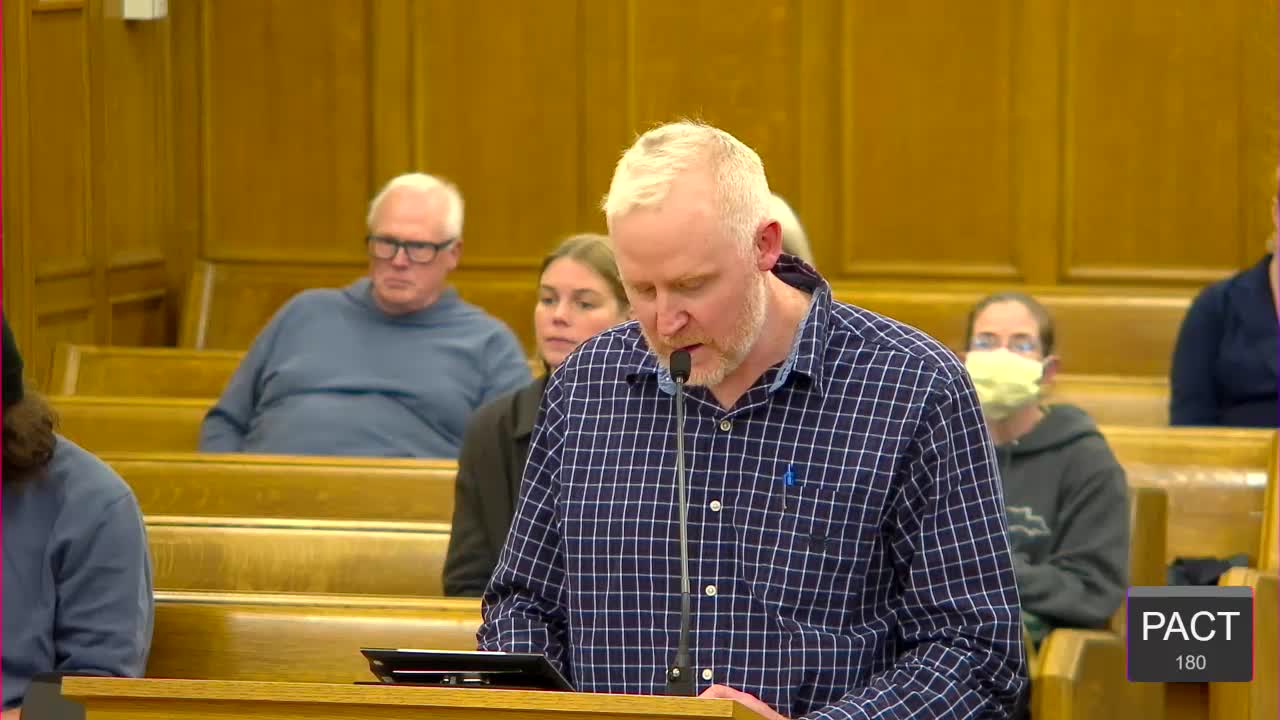Parks commission warns fixed park levy has reduced buying power; urges new revenue strategies
Get AI-powered insights, summaries, and transcripts
Subscribe
Summary
Parks Commission President Mr. Demmer told the Duluth City Council on Oct. 14 that the city’s fixed 2011 Park Fund Levy of $2.6 million no longer matches rising costs, producing deferred maintenance and a dwindling capital fund that could be depleted by 2028 without new revenue strategies.
Parks Commission President Mr. Demmer told the Duluth City Council on Oct. 14 that the city’s Parks and Recreation Division is operating under long‑term financial stress because the 2011 Park Fund Levy is a fixed $2,600,000 annually that does not adjust for inflation or rising costs.
The commission’s president said the levy’s static amount has steadily eroded purchasing power and produced “costly deferred maintenance,” warning capital funding for parks could be exhausted by 2028 without structural changes to how parks are funded.
Why it matters: Parks and trails also function as transportation links, recreation and tourism assets that affect public health and the local economy. The commission urged the council and administration to treat the fixed park fund as a base and consider offsetting expense increases from the general fund or other sources so operations and capital projects are not effectively reduced by inaction.
Demmer said the commission supports exploring several alternatives, including private–public partnerships, a parks foundation to aggregate smaller donor groups, alternative funding models and targeted asset reduction. “We are stewards of these lands, and they’re held in trust for generations,” he said, urging the council to “think bold” as it considers budget options.
Councilors asked for specifics. Councilor Swenson asked what a private partnership could look like; Demmer described a range of sponsorship models from large, long‑term partnerships to smaller trail‑segment sponsorships. Councilor Ault asked whether a “Friends of the Parks” model had been discussed; Demmer confirmed the commission has discussed a parks foundation and smaller nonprofit coordination, but cautioned that raising substantial private funds would require careful consideration.
Councilors also raised the idea of a regional parks district. Demmer said the parks system draws many nonresidents, noting an Explore Minnesota report estimating more than $800 million in annual outdoor‑recreation economic output for St. Louis County; he said political will among surrounding municipalities would be required to pursue a regional district.
On the inventory and possible asset divestment, Demmer told the council the city operates about 164 parks and that some smaller or tax‑forfeited parcels may not match the city’s essential spaces plan. He said the parks commission is open to conversations about reclassifying or divesting such parcels, but insisted any asset reduction must be “conducted with full public transparency, utilizing public planning processes and guiding principles of adopted plans, including the essential spaces and Imagine Duluth 2035 comprehensive plans.”
The commission framed the conversation as part of a longer budget trajectory change rather than a single meeting’s decision. The presentation closed with a request that council and administration collaborate with the Parks and Recreation Department, the commission and community stakeholders to identify sustainable funding approaches.
Coming next: Councilors thanked the presenter and indicated they would continue budget deliberations. The council did not take formal action on parks funding at the Oct. 14 meeting.
